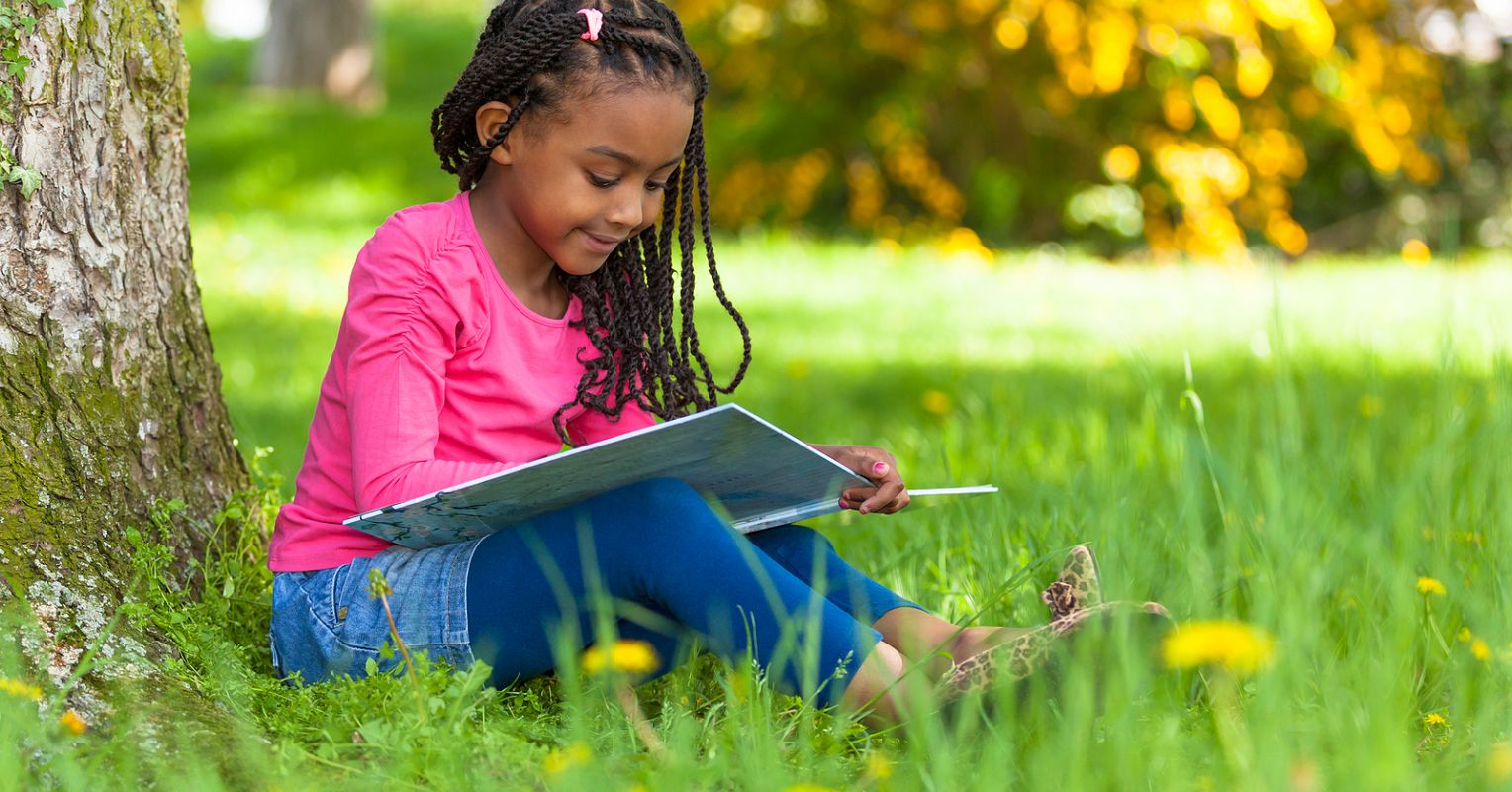Parenting requires physical, mental, and emotional labor. It demands multitasking, patience, sleepless nights, and money. But unlike other types of work, parents can’t simply quit; there’s no HR program conveniently in place to offer guidance. And unlike parents of ages past, modern-day caretakers in the United States rarely live among extended households where relatives can lend a hand.
When parents today need help, they have to actively seek it—and it seems that many don’t or can’t: In 2023, a third of parents reported high levels of stress in the past month compared to 20% of other adults, according to a 10-year analysis of the American Psychological Association’s Stress in America data.
This isn’t just a problem for parents but for children. As the former surgeon general’s 2024 advisory report, Parents Under Pressure, explains, there’s “a complex interplay” between the well-being of parents and that of their children, where a parent’s state of Mental health can influence a child’s, and vice versa. That’s not just because of genetics. A robust body of research suggests that stress—particularly the stress that comes with caretaking—can make it harder to raise children in a way that makes them feel safe, loved, and supported.
X

After all, parents serve as the foundation—the “essential external regulators”—of children’s emotions, and they set behavior expectations, says Larissa Hallal Ribas, a pediatric doctor and professor of medicine at the Catholic University of Pelotas, Rio Grande do Sul, Brazil, who has authored papers on the topic. When a parent is overwhelmed by parenting stress, it can influence the parent-child relationship and weaken this role. This, in turn, can undermine a child’s ability to form secure attachments, she explains, and affect emotional and behavioral health, including the potential for developing anxiety, depression, ADHD, oppositional defiant disorder, and conduct disorders.
“The findings from my research highlight that caring for the Mental health of parents is crucial to protecting the Mental health of children,” she says.
This need for parental support has perhaps never been more urgent. As the advisory points out, parents now grapple with stressors that didn’t exist to such an extent, or at all, until recently: navigating the ever-rising expectations of what “success” should look like for a child, managing social media, feeling that they’re forever falling short, and, of course, worrying over climate change and serious political strife. These challenges begin long before we think children are aware of the circumstances around them; and the effects can carry on long after they’re dropped off at college.
The good news is that even if parenting stress can disrupt parenting, it’s not inevitable and neither is its impact on a child’s well-being, says Marjorie Smith, professor emeritus of family psychology at University College London and a longtime researcher on children and families. “Some mums will continue to parent well, and some children will not be impacted by their mother’s stress, for example, if they have a close caretaking relationship with another adult, such as a father or grandparent.”
In helping caretakers manage parenting stress, we can also enhance their children’s well-being, the adult they become, and the society that they ultimately help shape. As we explain in our new book, Family Well-Being for the Greater Good: A Science-Based Workbook for People Supporting Parents, “peace and well-being in the world often begin with peace and well-being at home.”
Here’s a look at some recent research exploring the impact of parenting stress and anxiety on children as they grow, and what can help alleviate it.
Babies and long days of care
Infancy is arguably the most stressful time of raising a child, particularly for first-time moms and dads. Not only are infants fragile and needy, you can’t help but question whether you’re doing things right. Lack of sleep (not to mention, for some moms, breastfeeding) leaves parents feeling as if they’re being pushed over the edge.
Fortunately, stress levels typically decline as time goes by, likely as parents feel they’ve gotten the hang of it. But for others, a feeling of anxiety sticks around, and that can influence their child, explains Rebecca Brooker, who conducted a 2015 Frontiers in Psychology study in babies between nine months and two years of age and both their birth and adopted parents.
What surprised her the most was how small genetic influences were. “We’ve been taught for so long that genetics pre-programs us a certain way, but that’s not necessarily the case,” she says. “There’s something about a parent’s anxiety that is an important part of the early environment that shapes a child’s outcomes.”
She and her team found that anxiety symptoms in the adopted moms and dads predicted more negative emotional responses (such as avoidance and distress) in babies nine months later. There was no such correlation with the birth parents.
The team also found that the associations with stress go both ways: The negative emotions and behaviors at nine months correlated with anxiety symptoms in adoptive parents 18 months later, but not concurrently at nine months. This suggests that those symptoms may take time to unfold, says Brooker, a professor of psychological and brain sciences at Texas A&M University—and that the association between the parent’s and child’s behaviors likely strengthens over time.
What’s more, parenting stress is associated with parents being less responsive toward their children, notes a 2021 Children and Youth Services Review paper. This study, which examined both moms and dads, found that when parents are less sensitive toward their kids’ needs, parenting stress is associated with issues in cognitive development and prosocial behavior.
So, how can caregivers set aside stress and lean into more positive interactions? Along with the many proven strategies explored in our workbook for parenting professionals, learning mindfulness can make a difference. Research suggests that preschoolers’ moms who embraced mindfulness had lower levels of not only parenting stress, but also depression and anxiety.
Raising school-aged kids
Going to school presents a new array of experiences for kids and parents. Children are no longer small bundles, easy to tote along. They have opinions and want things, often things that aren’t particularly safe or healthy. They’re navigating academics and grades, friendships and extracurriculars, all for the first time.
All that can bring on a fresh wave of parental stress, made worse today in some communities by the frenzy of academic tutors, piano lessons, and youth sports now believed “necessary” to secure a kid’s future. Meanwhile, the stressors of day-to-day life—work, finances, aging parents, and so on—don’t let up.
It’s a lot; it’s tempting to just disengage. And yet a parent’s success in managing all this stress is particularly crucial during this phase of children’s lives. In a time of new social experiences and learning, parents are the primary guides. With positive parenting, their evolving brains grow neural connections that help them evolve socially and emotionally.
But when a caretaker is so stressed out so as to be unable to provide the support kids need, that could, instead, harm children’s Mental health. As the Parents Under Pressure advisory noted, a 2021 Adversity and Resilience Science paper found that a child with any caregiver with poor Mental health was twice more likely to have a history of mental, behavioral, or developmental issues—leaving the child more prone to struggles in school and social situations than a child whose caregivers had good Mental health. Kids with a mentally unwell caretaker were also four times more likely to have poor general health.
According to a 2024 Jornal de Pediatria review paper, studies suggest that the nature of the children’s emotional health and behaviors depended on the circumstance. For instance, hyperactivity and inattention behaviors were associated with the dad’s struggle with parental stress, while problems with peers and emotional issues were associated with the mom’s parental stress. Other papers they reviewed found correlations between parental stress and sleep disorders, among other conditions, in children.
In longitudinal studies, the team also noted a study in which parents experiencing ongoing parental stress may “lash out” at their children and have difficulty maintaining a safe, healthy household. “Chaotic and hostile home environments are associated with disruptive and delinquent behaviors in children,” says Ribas, at the Catholic University of Pelotas and the review paper’s lead author.
One of the many strategies in our workbook for people supporting parents to help maintain a peaceful home is to place importance on establishing a connection with your child. When parents spend time with their young child to support their needs and emotions, they create a secure base—empowering kids to still explore and be adventurous, while having “a haven to return to for safety and comfort.”
Parenting teens
The adolescent years are a critical time for cognitive, emotional, and psychosocial development, and parenting teens has never been easy. With social media, hyper-realistic video games, and other digital advances in the last decade, the sources of worry for parents come not just from the physical world, but also the virtual one.
The latest digital inventions to help parents feel more secure can also make them feel more stressed. Ask any parent about the tracking feature on smartphones, and they may tell you that it can arguably actually increase their worry, as they spy their kids veering off the beaten path (or worse, disappear, even momentarily, from the screen).
As conversations with parents suggest, it’s a tool that offers them some semblance of control—only to, at least sometimes, remind them how little control they actually have. And while much is discussed about how smartphones cause teens to disengage, those same smartphones can also prevent parents from looking their teens in the eye and connecting, too.
But as with younger kids, stressing over teens—and attempting to somehow ease that stress by reining them in—can exacerbate matters. A 2024 paper reports that parental stress symptoms predicted adolescent Mental health issues, especially when it comes to the mother’s stress. Interestingly, even though the researchers didn’t see a direct effect of the dad’s stress symptoms on his teen’s Mental health, the impact of stress may be exacerbated when the dad has difficulty showing support and affection toward the child, something termed parental rejection.
“Caring for the Mental health of parents is crucial to protecting the Mental health of children”
―Dr. Larissa Hallal Ribas
As in other age groups, the stress may go both ways. As a 2024 Communications Psychology paper found, stressful feelings in adolescents correlated with negative emotions and feelings in parents the same day and onto the next day. Children’s stress was also linked to physical health symptoms like headaches, cold, and flu.
“This finding suggests that parents also need support when their children are stressed,” says Melissa Lippold, associate professor of social work at the University of North Carolina, Chapel Hill. According to a 2023 Harvard Graduate School of Education report, an anxious teen is three times more likely than a non-anxious teen to have an anxious parent.
Fortunately, finding ways to manage that stress and focus on connecting not only improves the well-being of both parents and adolescents, it can lessen the negative impact of other stressors, too. As a 2025 Trends in Psychiatry and Psychotherapy review paper exploring family stress and resilience reports, parenting stress plays a mediating role in the link between neighborhood poverty, collective efficacy, and outcomes in adolescents. In addition, a more supportive home environment correlated with less stress in the child and healthy socioemotional development.
Our workbook provides a range of strategies for parenting professionals to help parents get there, including exercises in mindfulness and forgiveness. And while empathy is best approached with boundaries to guard against becoming emotionally overwhelmed, it’s also very important to consider when parenting teens, as our workbook notes.
“Empathy is vital for being able to respond sensitively to our children’s distress,” write psychologists Stacey Doan and Jessica Borelli in their book Nurture Meets Nurture. By trying to listen and see their teen’s point of view, parents can begin to understand their child’s needs. A 2016 Health Psychology study suggests that empathic parents possess a higher level of self-esteem and purpose in life, and, in turn, adolescents with empathic parents can regulate their emotions better, too.
Empathy starts with creating a non-judgmental space for conversation. As our workbook for people supporting parents notes: “When teens can rely on parents to be good listeners, they feel a sense of freedom and confidence in their capacity for self-expression, and a greater sense of connection with their parents.” What? A connection? With parents? Now that’s a win-win for everyone.













